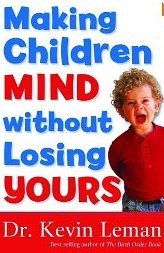 Yesterday I blogged about the 3 Bibles President Obama used in taking his oath of office and the significance of placing a hand on God’s Word. I’m not sure what God thinks about all that, but I do know he’s pleased when we put his Word in a place of honor and respect.
Yesterday I blogged about the 3 Bibles President Obama used in taking his oath of office and the significance of placing a hand on God’s Word. I’m not sure what God thinks about all that, but I do know he’s pleased when we put his Word in a place of honor and respect.
Several presidents, when taking their oaths, have put their hands on open Bibles, touching passages significant to them. For example, George W. Bush laid his hand on Isaiah 40:31. “They that wait upon the Lord shall renew their strength…” If there’s ever a job that needs renewed and re-renewed strength, it’s a president’s.
But other jobs desperately need the message of that verse, too, such as mothers caring for young children, fathers leading their families, businessmen trying to be ethical, pastors shepherding their congregations, widows struggling with grief… and virtually everyone else. The beauty of God’s Word is that it’s not just for presidents or formal ceremonies. It’s for all mankind.
This week I ran across my first “adult” Bible, the one my parents gave me at Christmas in 1958. I was 13 and had asked for a Bible with onion skin pages. I felt I’d outgrown my childhood Bible storybook and wanted to appear sophisticated in church and in Sunday school sword drills by being able to flip through those crinkly pages.
My Bible flyleaf is decorated with pithy Christian sayings and references that meant something to me back then, written in the script of a junior high school student. I remember being in love with this Bible until relatives gave me my first study Bible after high school. But the amazing thing about my old Bible is that it’s on an equal par with the “special” Bibles President Obama used during his inauguration.
Even though his Bibles had belonged to some very famous men, what’s most important about them is not who owned or used them, but who wrote them. And that’s the same thing that’s important about my nothing-fancy Bible, which puts mine on the same elevated plane as theirs.
What they all have in common is that the words inside were supernaturally written by God and are divinely charged with enough power to change lives. And that is why we give honor and respect to God’s Word and on occasion, even give it a part to play in a presidential inauguration.
“Your word, Lord, is eternal; it stands firm in the heavens. Your faithfulness continues through all generations.” (Psalm 119:89-90)






